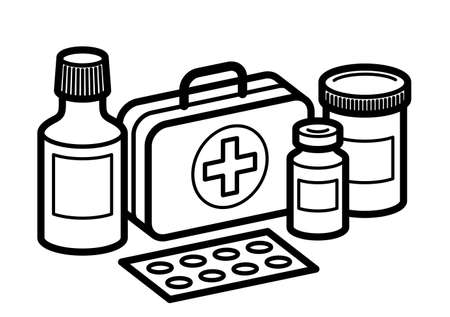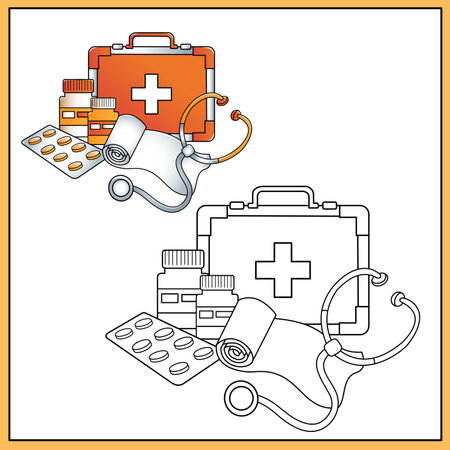Choosing the Right Bag
When it comes to preparing for labor and delivery, choosing the right hospital bag might seem like a small detail, but trust me, it can make your hospital stay a whole lot smoother. As a dad whos been through this process, I know that the last thing you want is to be scrambling at the last minute or lugging around an awkward, overstuffed suitcase. Here are some practical tips to help you pick a bag thats just right for your familys big day.
Go for Spacious, Not Overwhelming
Pick a bag that has enough room for all your essentials—think clothes for mom and baby, toiletries, snacks, chargers, and maybe even a cozy blanket from home—but isn’t so big that it becomes hard to carry or store in a hospital room. A medium-sized duffel bag or a roomy backpack usually does the trick for most American families.
Easy to Carry Is Key
You’ll probably be hauling this bag while helping your partner (and maybe juggling other items like car seats), so look for something with comfortable straps or wheels. Trust me, when you’re heading to the hospital in the middle of the night, you’ll appreciate not having to wrestle with your luggage.
Think Organization
Pockets and compartments are lifesavers. They let you separate essentials—like documents or baby’s first outfit—from everyday items. This means less digging around when you need something fast.
Durability Matters
A good quality bag can handle being packed and unpacked multiple times, tossed in the car, and even reused for future family trips. Look for sturdy zippers and easy-to-clean materials—because spills happen!
Style Isn’t Everything (But It Helps)
While practicality should come first, picking a bag in a style you like isn’t a bad idea. After all, those first photos at the hospital will stick around forever. Just keep in mind that comfort and function are more important than looks.
Remember, prepping early gives you one less thing to worry about on delivery day. Take time now to choose the perfect bag so you can focus on what really matters: welcoming your new little one into the world.
Essentials for Mom
When it comes to packing your hospital bag, making sure you have all the essentials for your own comfort, hygiene, and recovery is key. Labor and delivery can be unpredictable, so having your must-haves ready will help you feel more at ease and focused on welcoming your new baby. Here’s a practical checklist of what moms should bring to the hospital:
Comfort Items
- Robe or Comfy Pajamas: Hospital gowns get old fast. Bring something soft that makes you feel at home.
- Socks & Slippers: Keep your feet warm and comfortable as you walk around or rest.
- Pillow from Home: A familiar pillow can make a big difference in getting some rest.
- Lip Balm & Lotion: Hospitals are dry; keep your skin hydrated.
Hygiene Must-Haves
- Toiletries: Toothbrush, toothpaste, hairbrush, deodorant, face wipes, shampoo, conditioner, and body wash.
- Hair Ties or Headbands: Keep your hair out of your face during labor.
- Maternity Pads: The hospital provides some, but many moms prefer their own brand for better comfort.
Recovery Essentials
- Nursing Bras & Breast Pads: For immediate postpartum support and any leaks.
- Loose-fitting Clothes: Pack clothes that are easy to put on and gentle on your body after delivery—think high-waisted underwear and stretchy leggings.
- Phone Charger with Extra-Long Cord: Outlets aren’t always close by in hospital rooms.
Packing Checklist for Mom
| Category | Items |
|---|---|
| Comfort | Robe, pajamas, socks, slippers, pillow, lip balm, lotion |
| Hygiene | Toiletries kit, hair ties/headbands, maternity pads |
| Recovery | Nursing bras/pads, loose clothes, extra-long phone charger |
Dads’ Tip:
If you’re helping pack the bag, double-check the list with mom! Having these essentials on hand can really make those first hours and days after delivery more comfortable and less stressful for both of you.

Essentials for Baby
When it comes to packing your hospital bag, making sure you have everything your newborn will need for those first couple of days is super important. As a dad who’s been there, trust me—you don’t want to be caught off guard. Here’s what you should bring for your little one to keep things smooth and comfortable.
Clothing Must-Haves
Your hospital will provide some basics, but it’s always a good idea to pack a few extra outfits for your baby. Go for soft, easy-to-change onesies or sleepers—think about the temperature in the hospital and at home when you leave. Don’t forget mittens (to prevent scratching), socks, and a cozy hat. And of course, that special “going home” outfit for those first family photos is a must!
Blankets and Swaddles
The hospital usually supplies standard receiving blankets, but bringing a couple of your own can add an extra layer of comfort for your newborn. Soft swaddle blankets are great for keeping baby warm and secure, especially if you want something familiar that smells like home. Plus, they’re handy for covering up during feedings or snuggling up on the way out.
Feeding Supplies
If you’re planning to breastfeed, most hospitals are well-equipped with lactation consultants and can provide pumps if needed. Still, it never hurts to bring your own nipple cream or nursing pads just in case. For formula feeding parents, pack a couple of small bottles and your preferred formula brand—some babies are picky from the start! A burp cloth or two will also come in handy.
Other Helpful Items
A pacifier can help soothe your newborn (though some hospitals recommend waiting a bit), and baby wipes are a must—even though the hospital provides them, having your preferred brand can be comforting. Finally, don’t forget diapers; while the hospital usually has plenty, packing a few extras never hurts. Trust me—being prepared means one less thing to stress about when you finally meet your new arrival!
4. Essentials for Your Partner
When it comes to preparing your hospital bag, don’t forget about your support person—whether that’s your partner, a close friend, or another family member. Labor and delivery can be a long process, and your companion will want to be comfortable and ready to help you however they can. Here’s what your support person should pack to stay relaxed, supportive, and prepared for anything.
Comfortable Clothing and Personal Care
Your partner won’t have a hospital gown like you do, so remind them to pack comfortable clothes—think sweatpants, T-shirts, and a hoodie. Hospitals can be chilly, so layers are helpful. A change of clothes is a must if labor lasts overnight or longer. Don’t forget socks and underwear! Also, basic toiletries like a toothbrush, toothpaste, deodorant, and face wipes go a long way after hours in the hospital.
Snacks and Drinks
Labor can last a while, and cafeteria hours don’t always line up with your needs. Packing snacks keeps energy levels up without leaving the room for long. Think granola bars, trail mix, fruit cups, and bottled water or sports drinks. Just avoid anything too messy or smelly.
Support Person Packing Checklist
| Item | Why It’s Important |
|---|---|
| Comfortable clothes (2-3 sets) | For extended stays and comfort during long hours |
| Sweatshirt or jacket | Hospitals can be cold |
| Socks & underwear | Freshen up after an overnight stay |
| Toiletries (toothbrush, deodorant, etc.) | Stay refreshed without leaving the room |
| Pillow & blanket | Hospital chairs aren’t the most comfortable for sleeping |
| Snacks & drinks | Avoid hunger and keep energy high |
| Phone & charger | For updates, pictures, and entertainment during downtime |
A Few Extras for Comfort & Support
If your partner likes reading or needs something to pass the time during quieter moments, bring a book or download podcasts ahead of time. Headphones are also great for making calls privately or listening to music without disturbing you. Finally, some hospitals have policies requiring masks or other items—double-check ahead of time so you’re not caught off guard.
The right preparation helps your support person focus on what matters most: being present for you every step of the way. With these essentials packed, they’ll be ready to help however you need them throughout labor and delivery.
5. Documents and Paperwork
When it comes to labor and delivery, having all your essential documents organized can save you a ton of stress—trust me, you don’t want to be scrambling for paperwork when contractions start! First things first, make sure you have your photo ID, like your driver’s license or state ID, ready to go. Hospitals in the U.S. will ask for this when you check in, and sometimes even during discharge. Next up is your insurance card. Double-check that it’s current and keep it in an easily accessible spot; this helps the hospital verify your coverage and speeds up the paperwork process both at admission and discharge. It’s also a good idea to bring any hospital registration forms you may have pre-filled (many hospitals let you register ahead of time online or by mail). If your doctor gave you any special paperwork—like birth plans, consent forms, or medical records—stash those in your bag too. And if you have legal documents such as advance directives or powers of attorney, bring copies just in case. I recommend using a sturdy folder or zip pouch to keep everything together. Having these documents handy not only keeps things running smoothly but also lets you focus on what really matters: welcoming your new baby into the world.
6. Personal Comforts and Entertainment
Let’s be honest—labor and delivery can mean a lot of waiting around, both before the action starts and after baby arrives. That’s why packing a few personal comforts and entertainment options in your hospital bag is key to keeping spirits up and nerves calm. First off, think about items that make you feel at home: your favorite pillow, a cozy blanket from your couch, or even your go-to slippers. Hospitals do their best, but nothing beats the feeling of your own stuff when you’re trying to rest or relax.
Next, consider what will help you pass the time. Labor can be unpredictable, and sometimes there are long stretches where you’ll want something to distract you. Pack some magazines, a good book or e-reader loaded with stories you’ve been meaning to read, or even a puzzle book if that’s your thing. Don’t forget headphones—whether you’re zoning out with your favorite playlist, catching up on podcasts, or watching Netflix on your phone or tablet, headphones are a must for privacy and peace.
If you’re into journaling or want to jot down some first thoughts after meeting your baby, bring a small notebook and pen. Some parents also like to pack a deck of cards or travel games for those in-between moments when conversation needs a boost.
And here’s a classic dad tip: don’t forget chargers for all your devices! Hospitals aren’t known for having plenty of outlets handy, so throwing in an extra-long charging cable is a smart move.
Finally, if there’s something sentimental—a photo from home, a lucky charm, or anything else that makes you feel grounded—bring it along. These little personal touches can make a big difference during such an emotional time.
7. Last-Minute Additions and Tips
Even with the most organized hospital bag, there are always a few last-minute items you’ll need to grab right before heading out the door. As a dad who’s been through this, let me share some practical advice on what to add and a few tips based on what many U.S. hospitals recommend.
Grab These Essentials Right Before You Leave
- Phone and Charger: You don’t want to forget your phone (and maybe a portable charger). It’s your lifeline for family updates, photos, and entertainment during downtime.
- Wallet and Insurance Card: Double-check you have your ID, insurance card, and any necessary hospital paperwork. Most hospitals require these at check-in.
- Snacks and Drinks: Pack fresh snacks or drinks you can’t prep ahead of time—think sandwiches, fruit, or your favorite energy drink. Hospital food isn’t always available when you want it, especially late at night.
- Comfort Items: Your partner might want their favorite pillow or blanket from home for extra comfort. Trust me: familiar items help make the hospital feel less intimidating.
Based on Local Hospital Guidelines
- No Valuables: Most U.S. hospitals recommend leaving expensive jewelry or large amounts of cash at home. Hospitals are busy places, and it’s easy for valuables to get lost.
- Packing for Baby: Some hospitals provide diapers, wipes, and even baby clothes during your stay. Call ahead or check their website so you don’t overpack.
- Cord Blood Banking Kits: If you’ve arranged for cord blood banking, remember to bring your kit along—it’s something many parents forget in the rush.
A Few Extra Dad Tips
- If you’re driving to the hospital, fill up your gas tank a few days before the due date. You don’t want to worry about stopping for gas when things get moving fast.
- Have a backup plan for siblings or pets if labor starts in the middle of the night—coordinate with friends or family ahead of time.
Final Thoughts
The best advice is to keep your bag by the door in those last few weeks and review your checklist one more time as go-time approaches. Staying prepared means less stress when baby decides its time to arrive!


